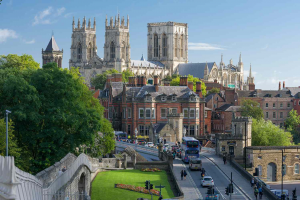Life, Religion and Ethics (LRE)
Intent: The Big Ideas in LRE at AHS
The LRE curriculum strives to contribute to the spiritual, moral, social, and cultural development of pupils; to equip pupils with the knowledge and skills to engage with religious, ethical, and philosophical questions and worldviews; developing a sound knowledge of a variety of religious, non-religious traditions and cultures.
The LRE curriculum aims to:
- Develop strong religious literacy.
- Inspire curiosity.
- Develop knowledge of world religious, and non-religious, beliefs and traditions
- Be culturally and ethically relevant.
Woven through the LRE curriculum is the exploration of three disciplines: learning through the lens of:
- Theology – Believing.
- Philosophy (& ethics) – Thinking.
- Human & Social Science – Living.
We teach our pupils, so they know what religion is through:
- The study of Christianity (as the main religious tradition in the UK) and Islam (Abrahamic religion) and Hinduism (Dharmic religion); to know key beliefs and practices of the followers of these religions, reflecting that Britian is a diverse community.
- Comparing key religious beliefs from different religious traditions, and non-religious traditions (Humanism), to explore how different people see and respond to the world; to promote tolerance and respect.
- Considering big ethical and philosophical questions in life, from religious and non-religious viewpoints, to develop an understanding of the world in which we live, and to inspire curiosity about the world.
- The development of personal viewpoints, enabling pupils to articulate and respect different views, and to think critically about big issues.
- Taking part in balanced, well-informed conversations about religion, belief, and life issues.
Concepts taught throughout the curriculum in LRE.
- Human concepts: sanctity of life, human rights, equality, social justice, stewardship and love.
- Religious concepts: transcendent God, good & evil, afterlife, religious texts & authority, worship and living a good life.
- Specific religious concepts: big ideas and concepts that are unique to each religious tradition are taught through the study of Christianity, Islam and Hinduism.
How the LRE curriculum contributes to the school’s curriculum intent
Our curriculum supports students from all backgrounds, including those who are disadvantaged, so students can access a high-quality, knowledge-rich curriculum. Our school community believes strongly in providing disadvantaged pupils with a curriculum that enables them to reach the academic standards of their non-disadvantaged peers. Our goal is to bring our young people into the big conversations of our disciplines, to bring depth to our curriculum, so they can understand the world around them.
- Knowledge is developed about key Christian beliefs and practices and the key beliefs and practices in Islam, and Hinduism (KS3 only). Knowledge about big ethical and philosophical questions: relationships, role of family, abortion, euthanasia, origins of the universe, origin of people, environmental and animal rights issues, reasons for crime, aims of punishment, death penalty, human rights, social justice, prejudice & discrimination, wealth & poverty.
- Vocabulary rich through exposure to subject specific vocabulary to describe the nature of God and key concepts in Christianity and Islam (for example: sanctity of life, equality, prejudice & discrimination, freedom, predestination, stewardship) and applied in extended writing.
- Aspiration through challenging subject matter and difficult religious & ethical concepts. Challenge through critical and evaluative thinking and extended writing. Formative feedback to support the culture of improvement – we always can improve our work, knowledge, and learning.
- Character building through study and evaluation of ethical and philosophical questions/issues contributing to SMSC and pupils who understand and begin to make sense the world around them as LRE curriculum is linked to real life themes & issues.
- Love learning as pupils study engaging, real life themes which develop critical thinking. Deep human questions are tackled to engage and foster love of learning. Teaching methods use a range of techniques to engage pupils and foster a love of learning. Challenge is promoted through deep learning to develop pride in achievement to develop confidence, self-belief, and inspiration to learn more.
The LRE Learning Journeys
Knowledge Organisers in LRE
Reading in LRE
Reading is prioritised in LRE. We read a range of sacred writings to support pupils’ knowledge of ways of knowing how religious beliefs are established and change; and to develop an understanding of the interpretation of holy books. Other sources and texts are read in lessons from philosophical writing to human/social science texts. Academic vocabulary is taught enabling pupils to speak, write and think like an expert.
Learning Beyond the Classroom in LRE
In LRE, cultural capital is a priority. This means we want to expose our students to a wide range of experience that expand their knowledge of the scope and breadth of humanity, its culture and belief systems. We have travelled to York Minster several times with the aim of understanding how religious belief systems have driven humans to build some of the most impressive and labour-intensive structures in the world. This helps them to understand what it means to be a Christian, a Muslim or a Hindu believer but also to understand the role that religion plays in people’s lives.





